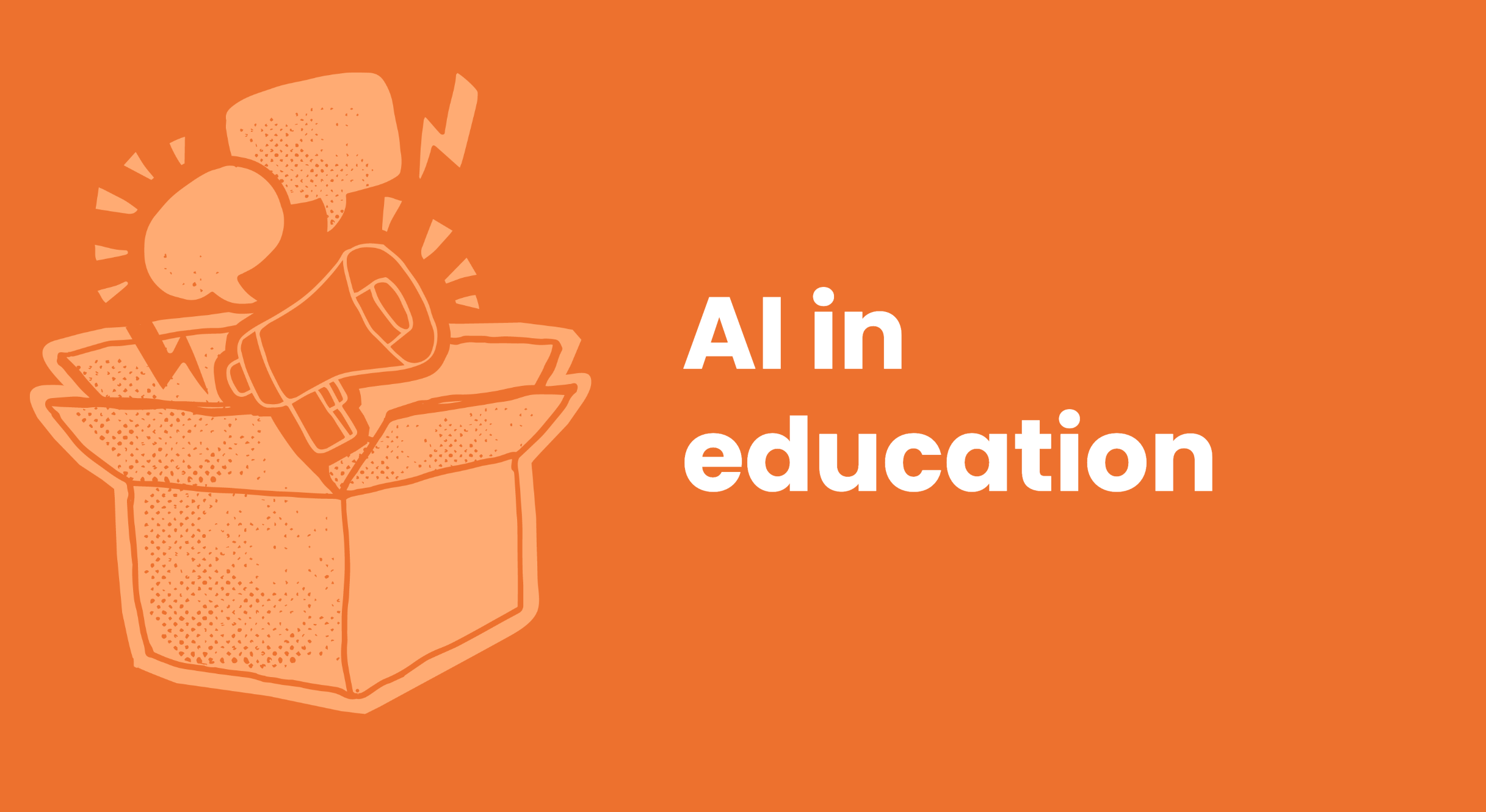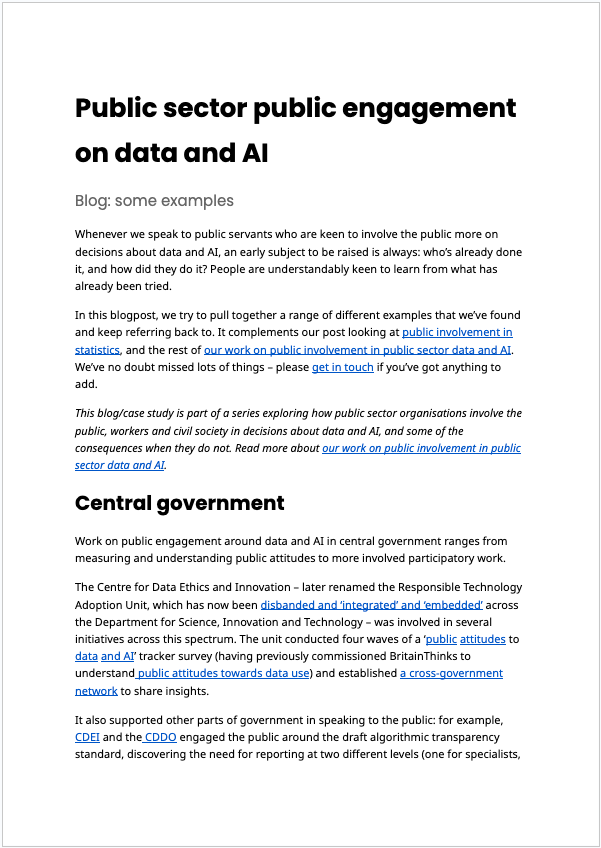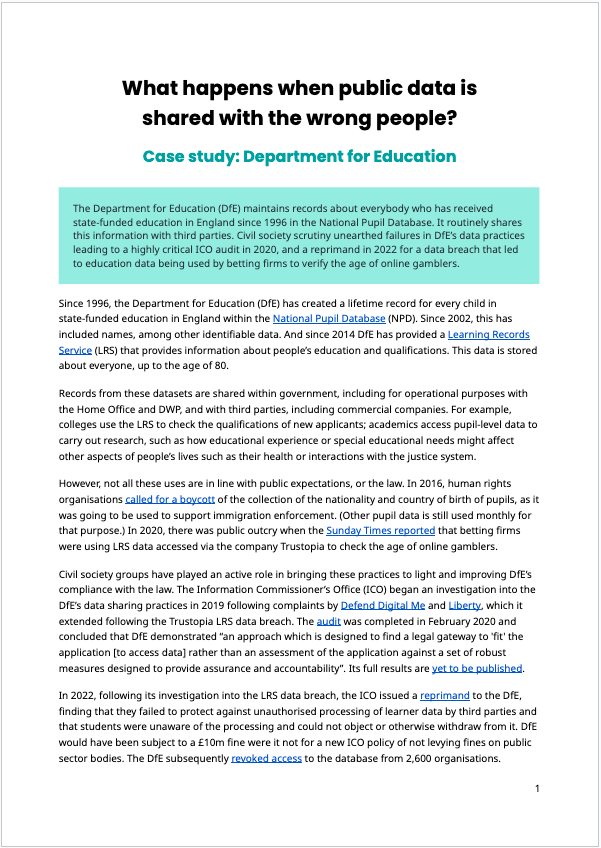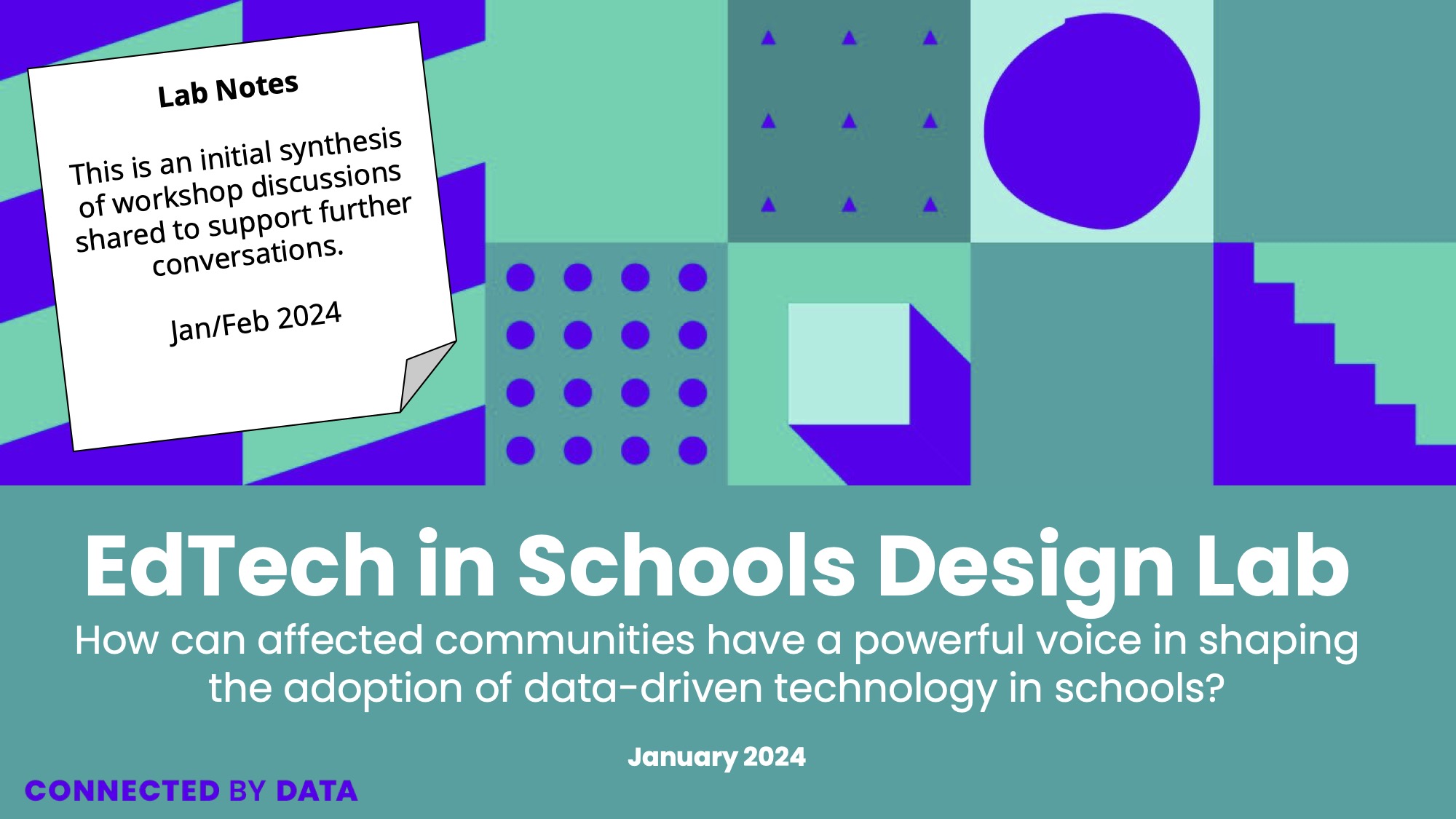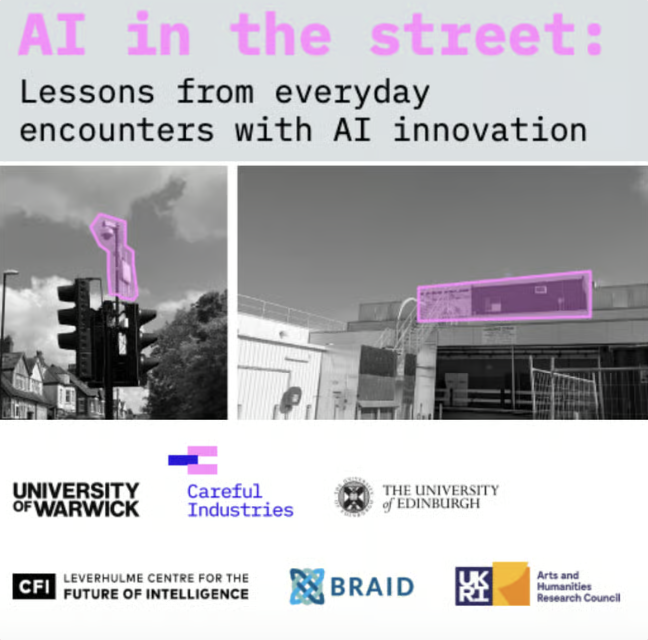Education
Giving students, parents and teachers a powerful say


Underneath the near universal experience of going through formal education is significant diversity within a sprawling sector. With the education sector under strain and the subject of intense political scrutiny and debate, the introduction of digital technologies and EdTech is raising questions around student learning experience, the teaching profession and the role of private interests in public service.
Through working with partners and stakeholders in the sector, we are exploring how to centre the voices of school communities, and to build collective capabilities to ensure the mix of education and technology contributes to the wellbeing and educational outcomes of all.
Between 1st November and 15th December 2025, over 1000 students shared their views through a distributed dialogue on how schools, government and AI firms should be approaching the use of generative AI in education.
A joint statement made by 10 unions representing education workers, produced as part of the Connected by Data and TUC project ‘Building educator’s power to shape AI‘
We are ten unions representing millions of educators across the UK – teachers, specialists, support staff, school leaders, and workers throughout the education system. Every day we support, teach and lead in schools, colleges, and universities across all jurisdictions of the UK.
As AI is being rolled out rapidly in education, there is an urgent need to ensure this is shaped by the expertise and professional judgement of these educators. We recognise that AI and education technology (EdTech) can complement human-centred education. But we know that AI cannot solve the education system’s deeper problems: underfunding, teacher shortages, overwhelming workloads, or the social and economic pressures educators face every day. And without clear guardrails, these technologies risk making existing problems worse and undermining both quality of education and students’ best interests.
To realise the potential that AI in education can offer, educators and their unions must be central to every stage of AI adoption, from policy formation and design, through procurement and deployment, to evaluation. All actors and institutions must ensure that AI and EdTech strengthens, not replaces or undermines, the vital relationships between all education workers and students.
We set out here the ways in which educator voice must be empowered from end to end, from the highest levels of regulation to decisions at local levels.
The ‘Generative AI in Education: Have your Say’ Workshop in a Box provides adaptable resources for holding discussions with students aged 10 - 18 on benefits and problems of AI in education, supporting deliberation on the issues it raises, and suggesting a range of ways to express feedback.
Between November 3rd and December 15th 2025 a feedback platform is available to submit the outcomes of workshop sessions as an input to the DfE AI in Education Summit taking place in early 2026.
Whenever we speak to public servants who are keen to involve the public more on decisions about data and AI, an early subject to be raised is always: who’s already done it, and how did they do it? People are understandably keen to learn from what has already been tried.
This blog/case study is part of a series exploring how public sector organisations involve the public, workers and civil society in decisions about data and AI, and some of the consequences when they do not. Read more about our work on public involvement in public sector data and AI.
The Department for Education (DfE) maintains records about everybody who has received state-funded education in England since 1996 in the National Pupil Database. It routinely shares this information with third parties. Civil society scrutiny unearthed failures in DfE’s data practices leading to a highly critical ICO audit in 2020, and a reprimand in 2022 for a data breach that led to education data being used by betting firms to verify the age of online gamblers.
This case study is part of a series exploring how public sector organisations involve the public, workers and civil society in decisions about data and AI, and some of the consequences when they do not. Read more about our work on public involvement in public sector data and AI.
How can affected communities have a powerful voice in shaping the adoption of data-driven technology in schools?
We brought together 17 participants for two online workshop sessions in January 2024 to explore:
- the growing use of data-driven educational technologies (EdTech) in UK schools;
- challenges around who has, and who does not, have a say in EdTech adoption;
- possible approaches to give affected communities a more powerful voice in EdTech decision making.
Participants included teachers and school counselors, teaching union representatives, and education researchers. Sessions were designed with support from Defend Digital Me.
This is an initial synthesis of workshop discussions shared to support further conversations.
The official push to roll out AI in education (among every other area…) throws up sticky questions of pedagogy, practicality and professionalism. Yet too often the voices of educators – support staff, teachers, school leaders and specialists – are squeezed out by the promises of Edtech products offering to solve everything from attainment to attendance.
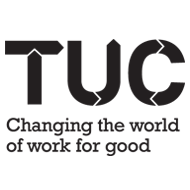


Tim spoke at a joint DEMOS and National Education Union roundtable on “Exploring the emerging impacts of AI on children’s learning in education and the tools needed to ensure positive outcomes overall” to share student voices captured through the Generative AI in Education project
Tim attended a workshop of the AI in the Street project at Newspeak House in London. A brief write-up is below, also shared with additional links and images on Bluesky

Jeni spoke on the opening panel of the UK’s Generative AI for Education Summit, presenting findings from the Generative AI in Education: Have Your Say project.


Data-driven technologies and AI within EdTech are entering the school and classroom environment at pace, and are likely to increase. The UK government has recently made a series of announcements, including the promise of an AI assistant for every teacher. But concerns abound on the objectives and impact of this push, from displacing the need for new bricks and mortar and working conditions for school staff with tech-fixes, or the poorly understood effect of the learning experiences of children.

How can affected communities have a powerful voice in shaping the adoption of data-driven technology in schools?

On 5th December 2022, CONNECTED BY DATA organised an event in parliament, hosted and chaired by Lord Tim Clement-Jones, to explore three key areas around the future of data governance: automated decision-making, data at work and data in schools.
These are all areas that could be affected by the Data Protection and Digital Information Bill, expected to return to parliament for its second reading at some point in 2023. We think the Bill represents an opportunity to influence how data is governed in a more democratic and participatory way, but worry that – in its present form – it undermines existing safeguards and misses the chance to extend democratic data governance.
The three areas under discussion also represent domains where growing data collection and use could have both significant benefits and harms in the future, regardless of what happens to the Bill. The event invited opening contributions from civil society and academic experts on each topic before opening up to a wider discussion. The experts were on the record unless they requested otherwise, with everyone else being unattributed under the Chatham House Rule.
Jonathan attended the online launch of the Digital Futures Commission report on the reality of education data.
Opinion
We’ve been creating a small toolkit to help schools, colleges and informal education settings to discuss Generative AI in Education. This blog post reflects on elements of the development process.
The Department for Education has recently released public attitudes research on what parents and pupils think about AI in education, as part of its announcement of a £4m investment to create a dataset to support building AI tools. This is a bit of a hangover from the previous government (the work was carried out earlier in 2024), but reflective of the current government’s commitment to maximising adoption of AI across the public sector.
Before I dig into the details, I should first say that it’s fantastic to see public sector organisations carrying out public attitudes research to inform how they approach the adoption of AI. This kind of research can be used to prioritise investments, inform governance processes to address anticipated harms, and identify barriers and blockers to adoption, as well as working out how to communicate about governmental plans.
Here I want to pull out some specific insights from the research that highlight considerations for how technology is rolled out for public services, namely about profit sharing; schools as trusted decision makers; and points about equity and choice. Then I’m going to discuss some lessons that should be taken into future similar public engagement exercises, particularly about shifting understanding and acceptance of technology; consulting teachers and workers; and the overall approach we need of “you said, we listened”.
Weeknotes
Weeknotes are a combination of updates and personal reflection written on a routine basis
